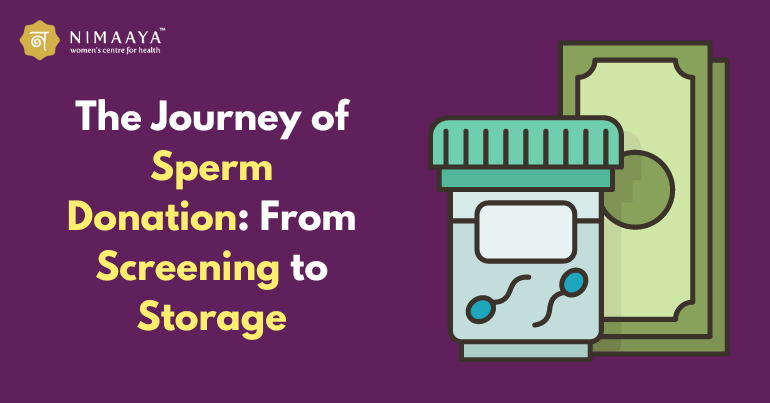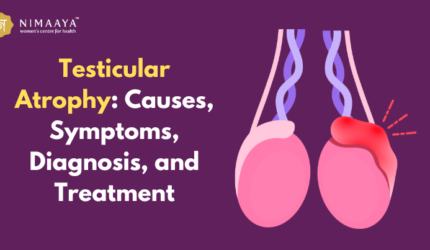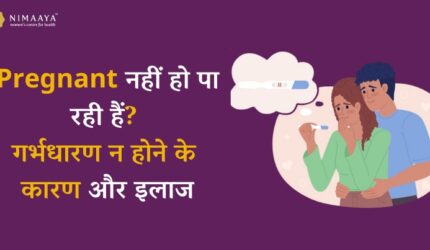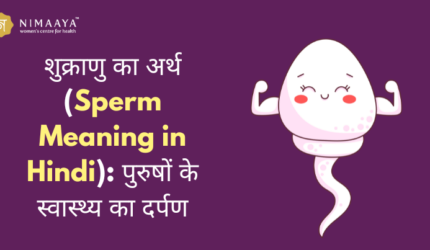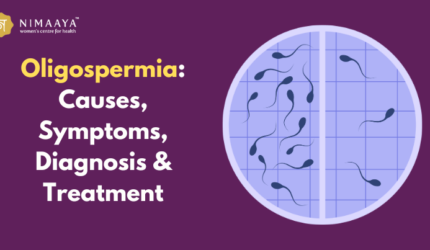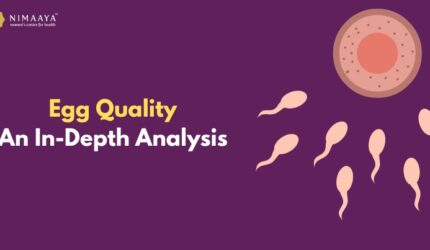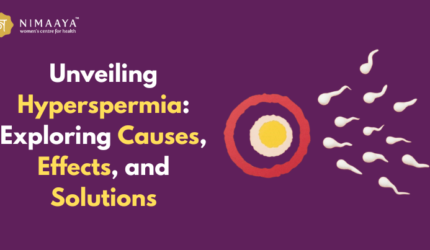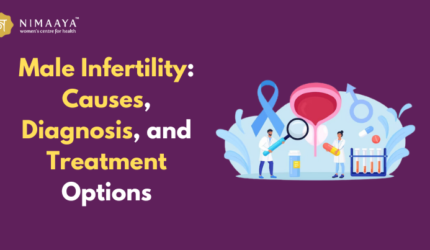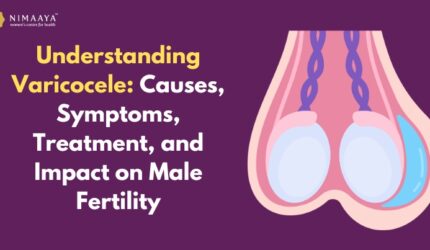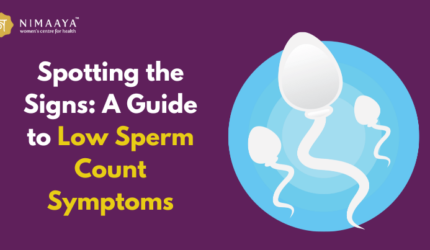Sperm donation is when a man contributes semen that contains sperm for use in artificial insemination or other fertility treatments. This medical procedure is often employed by individuals or couples who cannot conceive naturally. Sperm donation has been a significant option in the field of sterility, providing solutions for different situations like male infertility, solo mothers aspiring to conceive, or homosexual couples aiming to have a child.
Understanding Sperm Donation
Sperm donation is simply giving sperm to a fertility clinic or sperm bank which normally freezes and preserves it for future application during infertility therapy. It can be used by individuals or couples wanting to become pregnant, using methods such as artificial insemination or in vitro fertilization (IVF).
How Sperm Donation Works
The sperm donation process is comprised of several procedures:
○ Screening Process:
For a male to be a donor, he must go through extensive screening. This screening consists of reviewing his medical history, conducting a physical exam, taking blood tests, and undertaking genetic tests. This makes sure that the donor is healthy and has no hereditary diseases. Moreover, the psychological screening makes sure the donor is mentally prepared for the consequences of giving out his semen.
○ Sperm Collection:
After passing through the screening stage, the next step that a donor takes is to provide semen samples. The sample collection is normally done at either a sperm bank or clinic where there are private rooms loaded with all necessary materials for collecting samples via masturbation. Then it can be analyzed on parameters such as sperm count and movement characteristics plus shape to examine its quality.
○ Freezing and Storage:
High-quality samples are frozen using a process called cryopreservation. They are preserved in liquid nitrogen tanks at very low temperatures so that they remain viable even when thawed later on. Sperm can stay frozen for many years but still work perfectly when thawed out.
○ Distribution:
Thus frozen sperm becomes accessible to those people needing it for their fertility treatments either after shipping or direct usage in banks.
Sperm Donor Requirements
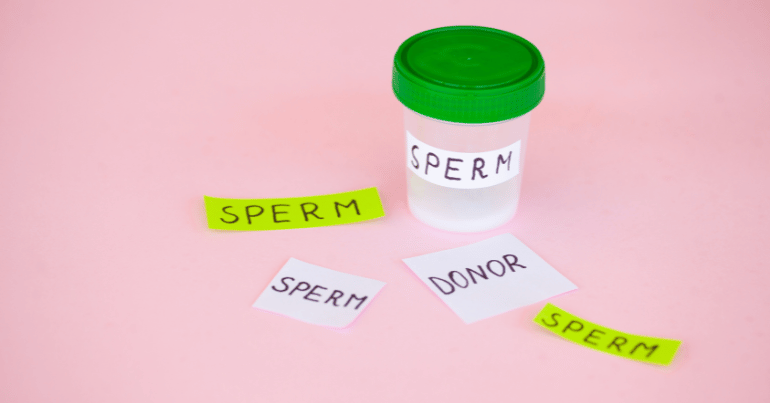
Eligibility Criteria:
The donor of sperm should satisfy certain criteria to make sure that the donation is safe and effective:
- Most sperm banks require that their donors be between the ages of 18 and 40.
- One must be in good physical and mental health without any genetic or sexually transmitted disease history.
- Before accepting a donor some banks involve looking into his or her lifestyle which would include sexual habits, and drug use, among other factors capable of affecting the quality of sperm.
- Commitment to donating regularly for a seemingly long period is required by many sperm banks from their donors.
Also Read: शुक्राणु का अर्थ (Sperm Meaning in Hindi): पुरुषों के स्वास्थ्य का दर्पण
Process: How to donate sperm
❧ Application:
Typically, potential donors begin filling out an application in a sperm bank or fertility clinic. This encompasses personal and medical details.
❧ Initial Screening:
The first part of the screening involves reviewing the medical history of the donor as well as conducting a physical examination. Moreover, blood and urine tests are also done to check for infectious diseases.
❧ Semen Analysis:
An initial semen sample is provided by the donor and analyzed for sperm count, motility (movement), and morphology (shape). If it meets the required standards, they can move on to the next stage.
Also Read: Understanding Semen Analysis: A Comprehensive Guide for Couples
❧ Genetic Testing:
This involves testing the donor’s blood for genetic disorders, which could be transmitted to offspring. It is an important step in ensuring that future children conceived using such sperm are healthy.
❧ Counseling:
Moreover, psychological counseling assists the donor in understanding how sperm donation affects his emotional and legal rights. This step is vital because it ensures that the donor comprehends all responsibilities and future situations that could arise.
❧ Donation:
Once approved, the donor is required to regularly supply semen samples. These samples are frozen and stored for future use.
❧ Compensation:
Sperm donation price varies as donors usually get paid for the time and effort that they put in. The amount of sperm donation money varies according to the sperm bank and location, but it is usually between $50 and $100 per donation.
Risks of Sperm Donation
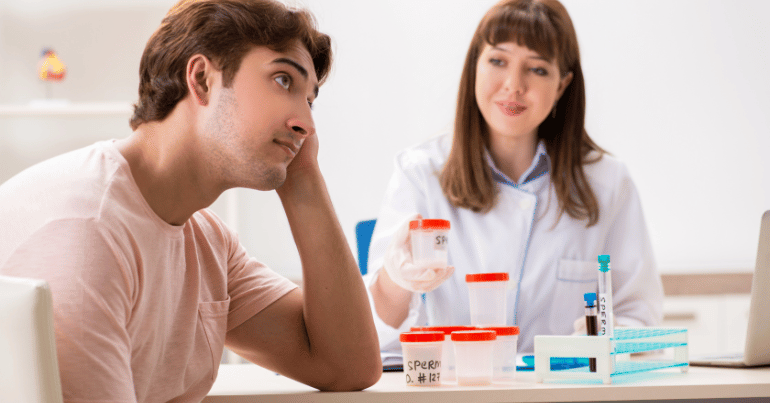
🔸 Physical hazards:
Sperm donation is widely seen as risk-free in physical terms. Through masturbation, sperm can be gathered without any major health issues.
🔸 Emotional and Psychological Risks:
Emotional risks like the psychology involved in sperm donation are huge. This may be due to how much donors think about their genes that can never return from past decisions; it becomes more complicated if these kids decide to come after them when they are grown up. Therefore this implies that donors should know well enough what it means emotionally before going through it.
🔸 Legal implications:
Normally the people who give away sperm do not become actual fathers of the born child although it may try again later on when someone wants original parenthood. Closer terms differ from one nation or area to another hence sperm givers need to be aware of the legal rightness and obligations.
Advantages of Sperm Donation
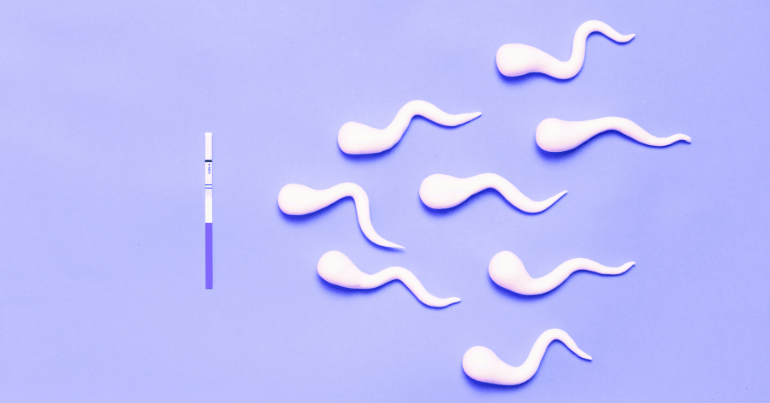
✅ Helping Others:
Among the greatest advantages of providing sperm is that this helps such people/couples who suffer from barrenness problems, thus giving them a chance to become parents. This act is a crucial service by donors making it easier for many individuals to have children when they thought it would never happen.
✅ Compensation:
For many donors, it’s not the main reason but some sort of an additional incentive to get paid for making this donation.
✅ Contributing to Medical Research:
Some sperm donations contribute to medical research to enhance our knowledge about genes, fecundity, and reproductive health.
Nimaaya IVF Center: A Leading Facility for Sperm Donation
Nimaaya IVF Center is a well-known fertility clinic offering comprehensive services that include sperm donation. It is renowned for its advanced infrastructure, highly skilled medical personnel, and increased success rates in fertility treatments.
Services Offered:
‣ Sperm Donation Program:
It has an established sperm donation program that meets the highest medical and ethical standards here. The donor undergoes a thorough screening process to ensure they are healthy enough and fully aware of what they are about to go through.
‣ Fertility Treatments:
Apart from sperm donation, some other fertility treatments here make it unique in many ways such as in vitro fertilization (IVF), intrauterine insemination (IUI), and egg donation.
‣ Genetic Counseling:
The Center gives genetic counseling services to prospective parents, unlike other clinics to explain to them the effects associated with utilizing donated sperm.
‣ Support Services:
It offers psychological assistance including counseling services for both donors and recipients thereby helping them manage emotions attached to fertility treatments.
Why Choose Us?
Nimaaya IVF Center’s staff members are qualified obstetricians whose specializations include reproductive technology, and infertility treatments like sperm donation and human implantation. The health of patients as well as their donors is taken care of by following laid-down procedures. Beyond physical care, our holistic approach addresses psychological issues related to fertility
Conclusion
Sperm donation provides an option to anyone who cannot bear children naturally. It allows donations to help people while also having something to gain from giving away their seeds. Nevertheless, potential sperm donors need to understand how it works; what it needs; its risks; how it feels, etc., before they take up this responsibility. For this reason, we are at the forefront when it comes to “spending many hours sperm harvesting services aimed at equipping giving and receiving parents near and far.”
In summary, this is an extensive discussion on sperm donation, covering its main aspects: a step-by-step process, requirements; dangers involved in human reproduction through sperm use; and finally advantages associated with Nimaaya’s IVF procedures.
FAQs
Who can donate sperm?
Generally, sperm donors tend to be males aged between 18 and 40 who are physically and mentally fit. The donor has to undergo some strict medical as well as genetic examination besides fulfilling the particular way of living expectations that are defined by the sperm bank or maybe a fertility clinic.
Can I donate sperm if I have had a vasectomy?
Any male that went through a vasectomy is not eligible to donate since in such a case his semen will not contain semen at all.
Are there any health risks with sperm donation?
The process of donating sperm is very safe with no serious health risks. However, this procedure could have emotional and psychological impacts hence counseling sessions are frequently organized.
How do I prepare for sperm donation?
Since optimal quality of sperm is needed when donating then; donors are advised to abstain from ejaculation for at least two to three days before the event takes place. Also advised is healthy living, quitting smoking, reducing alcohol intake and drugs plus drinking enough water.
Can people with genetic conditions donate sperm?
To stop passing on hereditary disorders through the baby-making process, sperm banks are doing comprehensive examinations for genes so that they do not accept individuals with family backgrounds marked by these sicknesses among their ancestors or even themselves. For instance, a donor may be disqualified if he carries some genetic disease.
What is the success rate of pregnancies using donor sperm?
Many factors influence the success rate of pregnancy with donor sperm, including the mother’s age and fertility status, the quality of the sperm, as well as the method of insemination. About 10-20% are the average success rates for cycles of artificial insemination with donor sperm.
Is sperm donation painful or uncomfortable?
Donating this kind of fluid does not hurt because it is a semen sample obtained by massaging your private organ. This act generally occurs in an uncomplicated way and most often happens in a private, cozy place.

